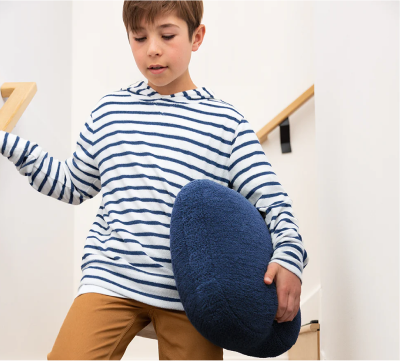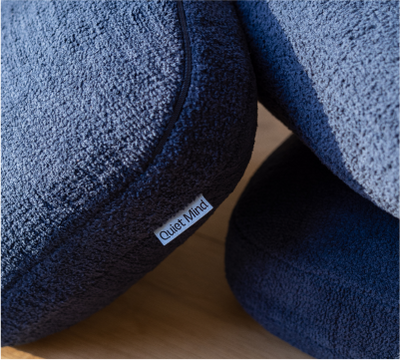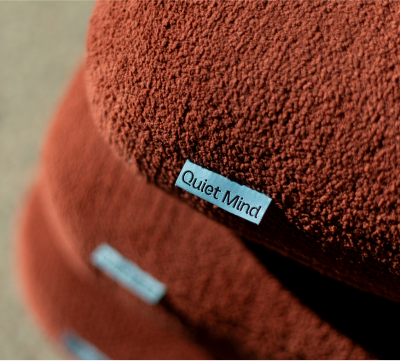Living with ADHD can feel like being out of sync with the world around you. It’s not just about attention; it’s about managing constant distractions, emotional ups and downs, and daily demands that rarely align with how your brain works.
For many individuals with ADHD, life can feel overwhelming, misunderstood, and exhausting. This article explores why life with ADHD can be so hard, the neurological and emotional roots of these challenges, and strategies that can make a meaningful difference.
Everyday Life Challenges with ADHD
Difficulty with Focus and Attention
Focus doesn’t come naturally for people with ADHD. It’s not because they don’t care, but because their brains filter and prioritize information differently. While some tasks may spark intense interest (a phenomenon called hyperfocus), mundane or repetitive ones may seem nearly impossible to engage with.
This inconsistency can be frustrating, especially when others misinterpret it as laziness or lack of willpower. Inattentive symptoms of ADHD may manifest as daydreaming, missing details, or being unable to stay organized.
Struggles with Organization and Time Management
Keeping track of appointments, managing deadlines, or even finding where you left your keys can become daily battles. People with ADHD may struggle with executive functions—mental skills responsible for planning, organizing, and managing time.
As a result, clutter often piles up, calendars remain unused, and to-do lists are started but not finished. This chaos affects many areas of your life, including academic performance, work reliability, and personal relationships.
|
Common Executive Function Challenges |
Examples |
|
Working memory |
Forgetting tasks, losing track of steps |
|
Cognitive flexibility |
Trouble shifting between tasks |
|
Inhibitory control |
Impulsivity, blurting out, interrupting |
Impulsivity and Emotional Outbursts
Acting before thinking, interrupting conversations, or making snap decisions without considering consequences are typical ADHD behaviors. Emotional outbursts—like crying when overwhelmed or frustrated—are also frequent and can seem sudden or disproportionate. It's common to notice that individuals with ADHD may cry more easily, often due to difficulties with emotional regulation. It’s a core aspect of how ADHD affects the nervous system and response to stress.
These symptoms can lead to misunderstandings at home and in school, especially among children and adults who haven’t received a formal ADHD diagnosis.
Hyperactivity, Restlessness, and Sleep Disruptions
While hyperactive behavior is often associated with children, ADHD in adults can look more like inner restlessness or an inability to relax. People may fidget, talk excessively, or feel unable to stop moving.
These patterns continue into adulthood and may affect sleep, leading to delayed bedtimes or difficulty waking up. Untreated ADHD often exacerbates sleep issues, making daily tasks even harder to manage.
Research suggests that up to 73% of individuals with ADHD report sleep-related difficulties, including delayed sleep onset and poor sleep quality. These issues further impair focus and mood regulation during the day.
Low Self-Esteem, Anxiety, and Depression
ADHD often co-occurs with other mental health challenges such as anxiety and depression. When ADHD symptoms cause repeated difficulties in social and academic environments, individuals may internalize negative feedback.
This can result in chronic underachievement and a distorted self-image. Many adults with attention deficit may not realize that ADHD is at the root of these challenges until they seek an ADHD diagnosis later in life.
Financial, Academic, and Work Performance Issues
From missed bills and impulsive purchases to forgotten deadlines and inconsistent work output, ADHD can disrupt nearly every area of functioning. This isn’t due to a lack of intelligence or effort—it's often a result of impaired executive functioning and difficulty with task initiation, time management, and follow-through.
ADHD may be affecting your ability to stay on top of responsibilities, despite your best intentions. Many adults with ADHD describe the painful gap between what they intend to do and what they’re able to accomplish.
This disconnect can lead to chronic frustration, underachievement, and a persistent sense of falling short—despite working twice as hard just to keep up.
Why ADHD Makes the World Feel Overwhelming
Executive Dysfunction and Decision Fatigue
For many individuals with ADHD, daily life can feel like a relentless stream of decisions, what to wear, when to start a task, how to prioritize what matters. While these choices may seem simple to others, they can be mentally draining for a brain that struggles with executive function. Executive dysfunction refers to challenges in initiating, organizing, and completing tasks in a logical sequence.
This constant mental juggling can lead to decision fatigue—a state where even small choices feel overwhelming. It’s not uncommon to freeze up or abandon a task altogether, not out of indifference, but because the brain is already over capacity.
ADHD may be affecting your ability to move from intention to action—not for lack of motivation, but because the mental pathways needed to do so are simply harder to access.
Time Blindness and Poor Task Prioritization
ADHD often disrupts a person's internal clock, leading to what’s known as time blindness, a distorted or inconsistent sense of how time is passing. Tasks may seem to take forever, or time may slip away without warning. People with ADHD often underestimate how long tasks take, which impacts planning and increases stress.
In addition to time blindness, ADHD can impair the ability to prioritize. Without a strong internal sense of urgency or structure, everything can feel equally important—or equally overwhelming. This makes it difficult to begin, persist with, or finish tasks in a logical order, often leading to missed goals or unmet expectations.
|
ADHD Impact on Time Management |
How It Shows Up |
|
Time blindness |
Losing track of time, underestimating or overestimating |
|
Unable to start |
Feeling paralyzed despite urgency or deadlines |
|
Completing a task |
Drifting mid-task, especially without novelty or rewards |
Emotional Dysregulation and Sensory Overload
ADHD doesn't just affect focus—it deeply impacts emotional processing. People with ADHD may find it harder to regulate emotions like frustration, sadness, or excitement. A small disruption, such as a missed message or a sudden change in plans, can trigger a disproportionately strong emotional response.
This reaction isn’t an overreaction, but rather a reflection of the ADHD brain’s limited capacity to process emotional input smoothly. When combined with sensory sensitivities like bright lights, loud environments, or strong smells, everyday surroundings can quickly become overstimulating.
This heightened sensitivity often contributes to feelings of overwhelm and emotional exhaustion. This sensory and emotional overload often leads to shutdowns, withdrawal, or outbursts. For both children and adults, these reactions can be misunderstood by others, which only adds to the internal burden.
Over time, this mismatch between what someone feels internally and what the world expects externally contributes to shame, miscommunication, and exhaustion. Recognizing these patterns isn’t just validating—it’s the first step toward more compassionate strategies for managing ADHD.
The ADHD Brain: How Neurology Shapes Behavior
Understanding the neurological underpinnings of ADHD helps explain why certain tasks feel harder—not because of a lack of willpower, but because of how the brain is wired. ADHD affects the regulation of dopamine, a neurotransmitter that plays a central role in motivation, attention, and reward processing.
The ADHD Nervous System: Easily Bored, Highly Reactive
The ADHD brain thrives on stimulation. It often struggles to regulate dopamine, making it harder to stay engaged with routine or low-stimulation tasks, yet easier to hyperfocus on something novel or exciting.
As a result, people with ADHD may:
- Feel mentally “stuck” when trying to start boring or repetitive tasks
- Experience bursts of intense focus during high-stimulation activities (e.g., creative work, crises, or new ideas)
- Be perceived as inconsistent in their productivity, despite working just as hard
- This isn’t a lack of discipline—it’s a reflection of how the ADHD brain processes motivation and reward.
Nonlinear Thinking vs. Linear Expectations
Among children and adults with ADHD, nonlinear thinking is common. Ideas may come in rapid, scattered bursts rather than in orderly sequences. This can be a gift in creative or problem-solving environments but may clash with structured systems that reward step-by-step logic.
This mismatch can lead to:
- Difficulty following rigid instructions or linear processes
- Feeling out of place in traditional classroom or workplace settings
- Self-doubt or perceived underperformance, despite high potential
What’s often seen as “disorganized” may simply be a different cognitive rhythm—one that isn’t always supported by conventional systems.
The Need for Novelty and the Struggle with Routine
The ADHD brain craves stimulation and novelty to maintain focus. Repetitive or predictable tasks often fail to activate the dopamine system, leading to boredom, procrastination, or avoidance.
This is why individuals with ADHD may:
- Start new projects with excitement but struggle to finish them
- Feel energized by spontaneous challenges but drained by daily routines
- Appear inconsistent or unreliable when tasks lack emotional engagement
This isn’t a lack of interest—it’s a biological need for stimulation to sustain mental effort.
Hyperactivity: Why the ADHD Motor Never Stops
Hyperactivity isn’t just about physical movement—it’s also an internal state. For many, it feels like having a brain that never slows down, even when the body is exhausted.
Common signs of hyperactivity include:
- Fidgeting, pacing, or constant movement
- Rapid speech or jumping from one thought to another
- Difficulty relaxing, even in quiet environments
- Trouble falling or staying asleep due to mental restlessness
- This constant mental and physical motion often leads to fatigue and disrupts routines, making everyday life feel more draining.
Coping Strategies to Make Life with ADHD Easier
Living with ADHD often means navigating a world that feels mismatched with how your brain operates. Coping is not about fixing yourself, but about discovering the tools, routines, and support systems that make daily life more manageable.
Whether you are newly diagnosed or have been managing symptoms for years, the right strategies can help you feel more in control and less overwhelmed.
ADHD Coaching, Therapy, and Emotional Support
Working with a therapist or ADHD coach can help you turn challenges into workable solutions. An ADHD coach provides structured guidance to improve planning, follow-through, and task management. Therapy, especially cognitive behavioral therapy (CBT), can help reframe negative self-talk, improve emotional regulation, and address coexisting issues like anxiety or low self-esteem.
Support groups can also be invaluable. Connecting with others who understand your experience brings relief, reduces isolation, and offers shared wisdom.
You may benefit from this type of support if you:
- Feel caught in cycles of avoidance or burnout
- Know what needs to be done but struggle to start
- Need help breaking tasks into realistic steps
- Carry emotional weight from past misunderstandings
- Seeking professional help is not a weakness. It is a sign of self-awareness and a meaningful step toward building a better daily life.
Practical Tools: Timers, Planners, and Visual Systems
For many people with ADHD, seeing is remembering. Visual and tactile tools reduce the mental load and help bring structure into your environment. These aids act as external reminders and keep important tasks visible and top of mind.
Helpful tools include:
- Visual timers to manage time and reduce distractions
- Color-coded calendars or planners to organize by category or urgency
- Sticky notes, whiteboards, or digital reminders to keep tasks in plain sight
- Step-by-step checklists to stay focused and avoid forgetting steps
- Quiet Mind’s weighted pillow, designed to provide calming deep pressure input that helps regulate sensory overwhelm and anxiety—especially useful during transitions or moments of emotional overload
When tasks are taken out of your head and placed into your surroundings, it becomes easier to follow through, maintain focus, and reduce stress.
Building ADHD-Friendly Routines
Successful routines for ADHD are flexible, not rigid. They work best when they support how your brain naturally functions. Predictable rhythms combined with room for adjustment can help you manage energy, reduce decision fatigue, and feel more anchored in your day.
You can build ADHD-friendly routines by:
- Linking new habits to something you already do (like journaling after breakfast).
- Using visual or sensory cues to start and end tasks.
- Including movement, music, or breaks to keep momentum steady.
- Creating structured transitions between activities.
- Reinforcing effort and consistency with small rewards or praise.
Even a small routine can make a big difference. Starting with one or two changes often leads to more clarity, motivation, and confidence across other parts of life.
Conclusion: You Are Not Alone in This Journey
Living with ADHD comes with very real challenges, but it also brings with it a unique kind of strength—creativity, insight, and deep emotional awareness. When supported well, these traits can shine. Although daily life may feel overwhelming at times, it becomes more manageable with the right tools, understanding, and encouragement.
Whether you are just beginning to explore how ADHD may be affecting your life, or have lived with it for years, support is available. From practical strategies to calming sensory tools, there are ways to build a life that feels more grounded and less reactive.
At Quiet Mind, we offer resources that support this journey. Our approach is rooted in calm, comfort, and compassion—because when the body feels supported, the mind has more space to breathe.
You are not alone. With care, community, and small changes that work with your brain, a quieter and more centered life is entirely within reach.
About Quiet Mind
At Quiet Mind, we believe in the power of simple, natural solutions to ease the mind and body. Our signature weighted pillows are designed to provide comforting pressure, helping to alleviate stress, anxiety, and restlessness.
Whether you're seeking a moment of calm during a hectic day or a more restful night's sleep, Quiet Mind offers tools to support your journey toward tranquility. Discover the soothing embrace of our weighted pillows and find your path to a quieter mind.
FAQ
Can ADHD be managed without medication long-term?
Yes, many people manage ADHD with behavioral strategies, coaching, therapy, and lifestyle changes. However, for some, medication remains a helpful part of treatment. It’s important to consult a healthcare professional.
What natural remedies help with ADHD symptoms?
Natural supports may include omega-3 fatty acids, magnesium, regular physical activity, mindfulness practices, and structured routines. These are best used as part of a holistic approach.
Why do routines help people with ADHD?
Routines provide structure and reduce decision fatigue. When aligned with the ADHD brain, they can improve task initiation, time management, and emotional regulation.
Is ADHD linked to sleep problems?
Yes, many people with ADHD experience difficulty falling or staying asleep. This may be due to a racing mind, sensory sensitivities, or delayed sleep cycles.
What’s the difference between ADHD and just being disorganized?
Everyone struggles with focus or organization sometimes. ADHD is a consistent pattern of challenges that significantly interferes with daily life and begins in childhood.
Does ADHD get worse with age?
ADHD doesn’t necessarily worsen, but challenges can change over time. With the right support, many adults find strategies that help them thrive.

















